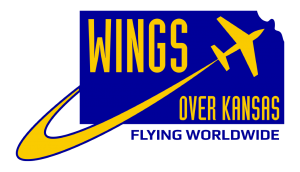 |
|
|
Established: |
October, 1997 |
|
Commander: |
Maj Gen Ted F. Bowlds |
|
Vice-Commander: |
Col Scott Coale |
|
US Military Budget: |
$1.8 billion (2006) |
|
Employees: |
4,200 civilian |
From Wikipedia, the free encyclopedia
The Air Force Research Laboratory (AFRL) is a scientific research organization operated by the United States Air Force dedicated to the development of warfighting technologies. The AFRL headquarters is at Wright-Patterson Air Force Base, Ohio. The laboratory was created in October 1997 through the consolidation of four former Air Force laboratories and the Air Force Office of Scientific Research (AFOSR).
Mission Statement
AFRL’s published mission statement is:
AFRL’s mission is leading the discovery, development, and integration of affordable warfighting technologies for our air and space forces. AFRL accomplishes this through nine technology directorates located throughout the United States, the Air Force Office of Scientific Research, and a central staff. AFRL’s partners include the Air Force major commands that operate and maintain the full spectrum of Air Force weapons systems. It is a full-spectrum laboratory, responsible for planning and executing the Air Force’s entire science and technology budget, basic research, applied research, and advanced technology development.
Directorates
The laboratory is divided into 10 Tech Directorates (TDs) based on different areas of research.
Air Force Office of Scientific Research
AFRL contribution to research is “by investing in basic research efforts for the Air Force in relevant scientific areas.” This is done with private industry and academia, as well as with organizations in the United States Department of Defense and AFRL.
Air Vehicles Directorate
Wright-Patterson AFB Dayton, Ohio
Directed Energy Directorate
Kirtland Air Force Base, New Mexico
|
AFRL sites |
Human Effectiveness Directorate
In its vision statement, the HE branch of AFRL includes the goals of “integrating personnel with systems technology,” and “protecting the force.” Towards fulfilling those goals, HE performs research to “define human capabilities, vulnerabilities, and effectiveness.” One practical application of HE’s work is ensuring the safety of ejection systems for pilots. HE has been working to protect airmen since 1931. Advanced manikins equipped with numerous sensors are used to establish injury thresholds and stress tolerances necessary for the design and implementation of aircraft and their systems. With the increasing number of females in the Air Force ranks, anthropometry is of greater import now than ever, and HE’s WB-4 ‘whole-body scanner’ enables swift and accurate acquisition of anthropometric data which may be used to design pilot equipment with a better fit for comfort and safety.
Wright-Patterson AFB Dayton, Ohio
Information Directorate
- Hanscom AFB, Massachusetts
- Rome, New York
Materials and Manufacturing Directorate
The AFRL Materials and Manufacturing Directorate (AFRL/ML) develops materials, processes, and advanced manufacturing technologies for aerospace systems and their components.
Munitions Directorate
Located at Eglin Air Force Base in Florida, the Air Force Research Laboratory Munitions Directorate (AFRL/MN) leads the discovery, development, integration, and transition of affordable munitions technologies for our air and space force. In order to accomplish its mission, the directorate is broken into three divisions: Guidance (MNG), Ordanance (MNM), and Analysis (MNA).
Propulsion Directorate
Wright-Patterson AFB, OH / Edwards AFB, CA
Sensors Directorate
Wright-Patterson AFB Dayton, Ohio
Space Vehicles Directorate
AFRL/VS is based at Kirtland AFB, Albuquerque, NM.
History Office
The History Office of the AFRL is located at Wright-Patterson AFB, Ohio. The History Directorate is under the jurisdiction of the AFRL HQ. It employs three full time historians, an archivist, and a number of interns. The archives contain lab histories as well as histories of Wright-Pat lab facilities.
References
- Air Force Research Laboratory. USAF.
- http://www.afrl.af.mil/factsht/afrlfactsheet.asp
- http://www.afosr.af.mil/AboutAFOSR/about_mission.htm
- http://www.he.afrl.af.mil/
- AFRL Materials and Manufacturing Directorate. USAF.

